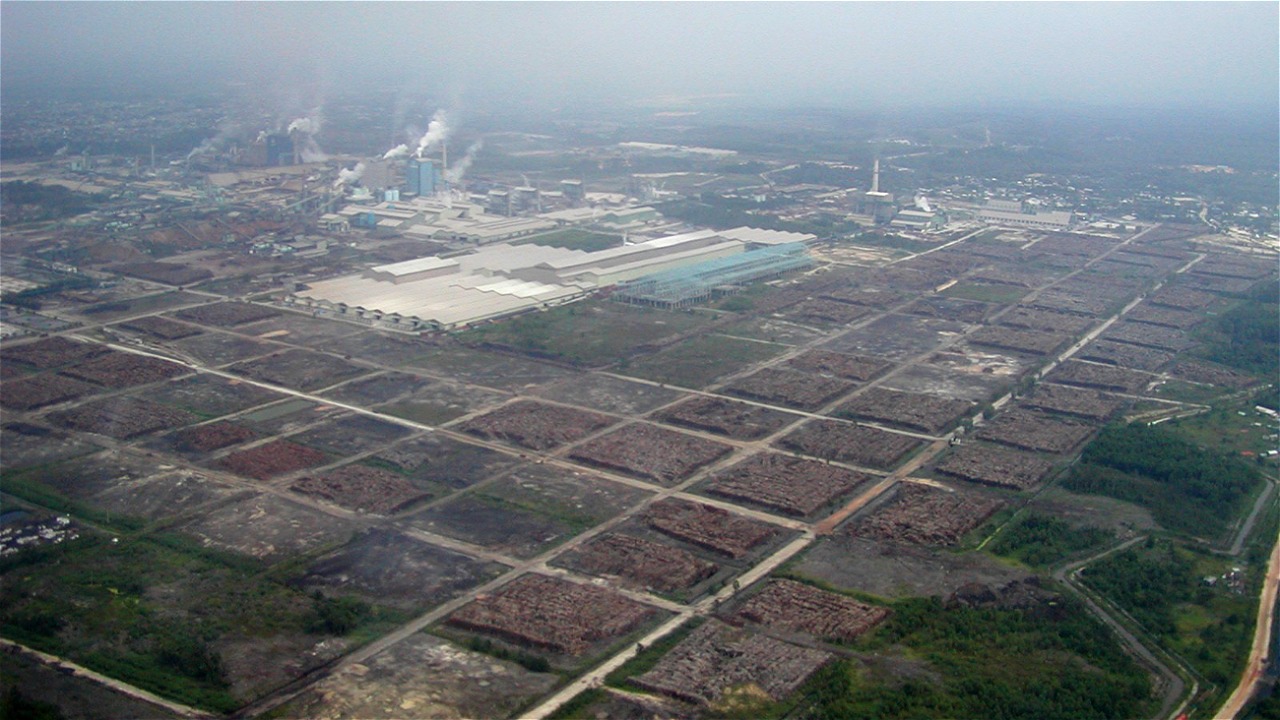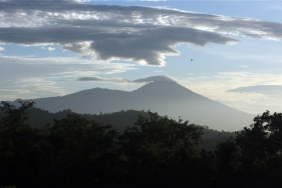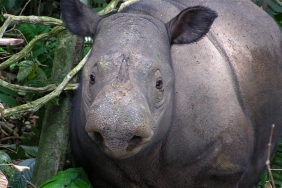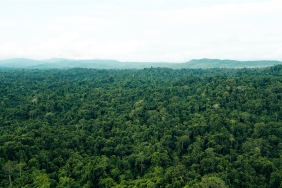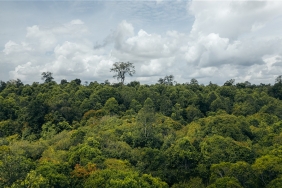WWF: APP MUST DO MORE FOR CONSERVATION, NOT JUST STOP LOGGING NATURAL FORESTS
JAKARTA (FEBRUARY 5, 2015) - Two years after Asia Pulp & Paper (APP) announced a new forest conservation policy, APP's pledge to stop logging of natural forests is still evident, but the loss of natural forests within APP concessions continues. A Rainforest Alliance audit report released today confirms the findings of WWF and other local NGOs that APP is still failing to stop deforestation and illegal activities by others within its concession areas, even within areas identified by APP as containing high conservation values and carbon stocks.
"APP has stopped logging natural forests and conducted various studies within their concession areas," said Aditya Bayunanda, WWF-Indonesia Forest Commodities Leader. "But there hasn't been much change at the ground level - forests are still being lost, peat is still being drained and social conflicts remain unresolved. APP has even failed to protect forests that the government requires to be conserved."
WWF assesses that little progress has been made in mitigating the climate impacts of APP's many concessions in peat areas. A Rainforest Alliance audit confirmed that, apart from halting the construction of new canals, APP has not taken any concrete actions on the ground to reduce greenhouse gas emissions resulting from the draining of millions of hectares of peatlands under APP's control.
WWF is also concerned about the little progress APP has made to resolve hundreds of social conflicts. The findings of local NGOs were also confirmed in the Rainforest Alliance audit and should be a priority for APP.
In 2014, WWF welcomed APP's initiative to restore and conserve 1 million hectares of tropical ecosystems outside of its obligations under applicable laws and regulations as an appropriate step to mitigate the impact of the company's deforestation of an estimated 2 million hectares of natural tropical forests.
"WWF participated in several stakeholder meetings and working group activities since the initiative was announced," Bayunanda explained. "These discussions have not resulted in significant progress. There is no concrete plan on where the forests will be restored or conserved and through what kind of funding. Even in APP's priority landscape, Bukit Tigapuluh, APP has not been able to fulfill its promise to provide wildlife corridors and stop illegal loggers and encroachers from entering the forest through their concession roads."
WWF appreciates APP's move to invite the Rainforest Alliance to conduct an audit of the progress of implementing their policy commitments, and encourages APP to immediately follow up firmly on the findings presented in the audit report. WWF will also carefully study the findings to further provide opinions and considerations to APP's buyers.
"After two years of review and planning, APP needs to focus on implementation. Today, APP is promising change and WWF will be monitoring the steps to see if APP is serious about saving forests," said Rod Taylor, Director of WWF-International's Forestry Program. "APP buyers should remain vigilant about the risks of doing business with a company that has not halted deforestation and carbon emissions from peat in the areas where it sources its wood."
For more information:
Aditya Bayunanda, Forest Commodity Leader, WWF-Indonesia, abayunanda@wwf.or.id, +62-818-265-588
Nyoman Iswarayoga, Communication and Advocacy Director, WWF-Indonesia, niswarayoga@wwf.or.id,
+62-811-128-4868
Rod Taylor, Director WWF Global Forests Program, rtaylor@wwfint.org, +41-798-177-620
Note to Editor:
1. WWF will update its advisory on APP after further analysis of the Rainforest Alliance audit report on APP's operations, which was released today.
About WWF
WWF is one of the world's largest and most respected independent conservation organizations, with over 5 million supporters and a global network active in over 100 countries. WWF's mission is to stop the degradation of the Earth's natural environment and to build a future in which humans live in harmony with nature, by conserving the world's biological diversity, ensuring that the use of renewable natural resources is sustainable, and promoting the reduction of pollution and wasteful consumption. panda.org/news for latest news and media resources.

